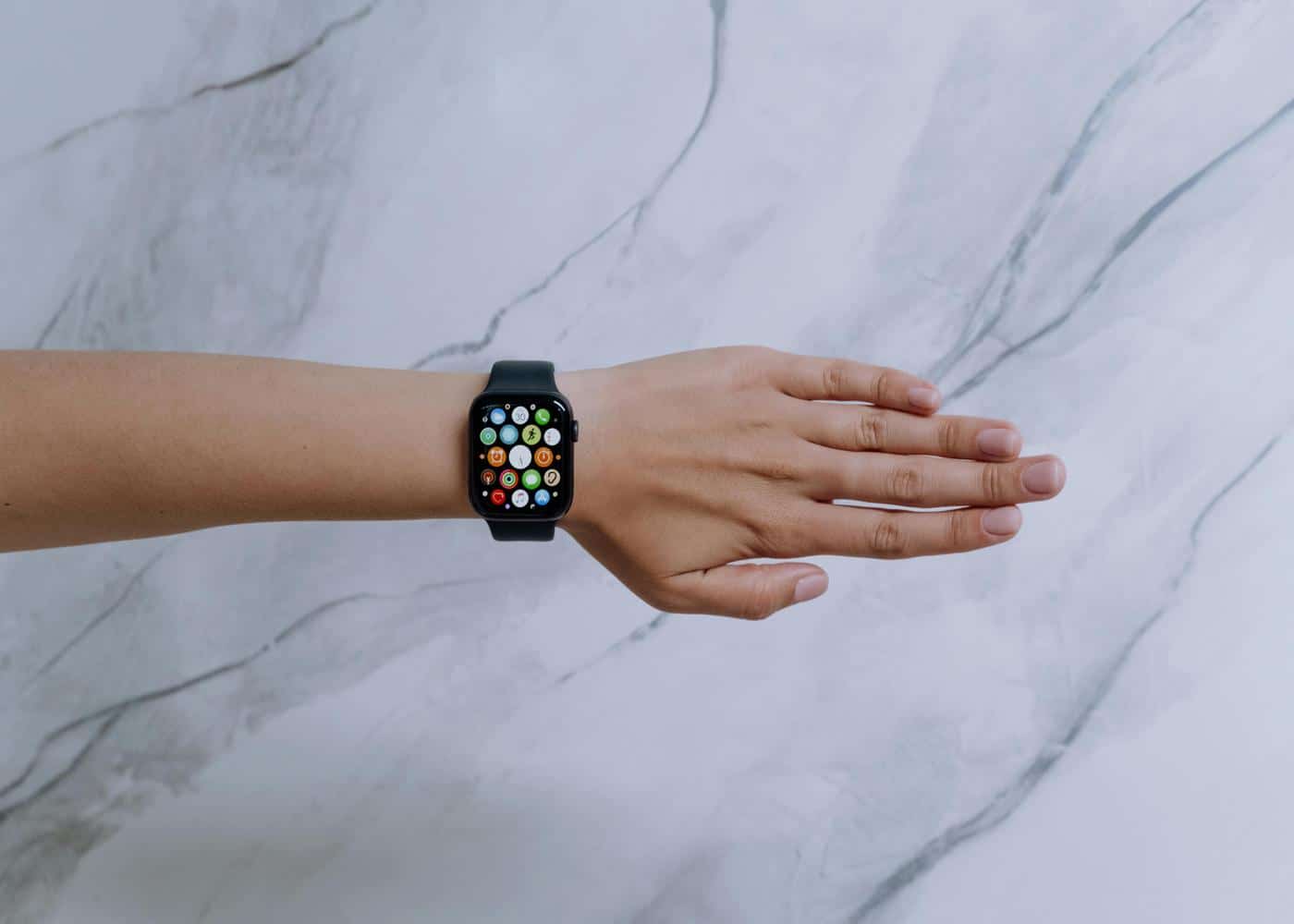Andrew Huberman Sleep Supplements: What the Expert Says
Sleep
Key Findings
The Andrew Huberman sleep supplements protocol centers on a simple “sleep cocktail” of magnesium, apigenin, and L-theanine, with optional additions like glycine or inositol for those who still struggle with rest. These deep sleep supplements are designed to calm the nervous system, reduce anxiety, and improve both sleep onset and depth. They work best when paired with good sleep hygiene habits such as morning sunlight, a cool bedroom, and a consistent bedtime routine.
Sleep is one of the most important foundations of health, affecting everything from mood and mental performance to recovery, hormones, and longevity. Yet for many people, falling asleep and staying asleep is a nightly challenge.
That’s why neuroscientist Andrew Huberman has become one of the most trusted voices on sleep science, thanks to his popular Huberman Lab Podcast and his widely discussed Andrew Huberman sleep supplements list.
But what exactly does he recommend? And should you try his approach? Let’s take a closer look at who Andrew Huberman is, his now-famous Andrew Huberman Lab ‘sleep cocktail’, and what you should consider before diving into deep sleep supplements.
Who is Andrew Huberman?
Andrew Huberman, PhD, is a neuroscientist and tenured professor at the Stanford University School of Medicine.
He runs the Huberman Lab, where his research focuses on brain function, neuroplasticity, stress, vision, and sleep.
Beyond academia, Huberman has reached millions through his Huberman Lab Podcast, where he breaks down scientific research into practical takeaways for improving performance and health.
His episodes on sleep have become some of his most listened-to content, largely because his recommendations are simple, science-backed, and often include actionable steps people can try immediately.
One of the most widely discussed aspects of his sleep advice is his sleep supplements protocol: a combination of non-pharmaceutical compounds designed to improve sleep quality without the side effects of prescription medications.
Andrew Huberman Lab Sleep Cocktail
The Andrew Huberman Lab sleep cocktail is not a literal beverage, but rather a supplement “stack” that he recommends taking 30–60 minutes before bedtime. The idea is to create a calm, parasympathetic state that allows the brain and body to transition into deep, restorative sleep.
Here’s the refined breakdown:
Magnesium Threonate or Magnesium Bisglycinate (145–200mg)
Magnesium supports GABA activity, which helps the nervous system downshift. Huberman recommends taking it about an hour before bed.He prefers threonate or glycinate because they’re gentler on the stomach than other forms like citrate. It’s best taken with a small glass of water, not a heavy meal, since large amounts of food can reduce absorption.
Apigenin (50mg)
This flavonoid, found in chamomile, binds to the same receptors targeted by prescription sleep aids, but in a gentler, plant-derived way.Huberman typically takes apigenin at the same time as magnesium, about 45 minutes before bed, allowing it to reduce anxiety and quiet a “busy brain.”
L-Theanine (100–400mg)
Huberman takes L-theanine in the evening alongside magnesium and apigenin. Theanine smooths the transition into sleep by reducing stress hormones like cortisol.
He emphasizes that sensitive individuals may benefit from starting at 100mg, while others may go higher within the 200–400mg range. Importantly, he notes that people with vivid dream disturbances might want to avoid high doses.
Taken together, these three compounds form the core Andrew Huberman Lab sleep cocktail, designed to prepare the body and mind for high-quality rest without creating dependence.
Optional Additions
For those who still have trouble falling asleep or staying asleep, Huberman sometimes suggests optional deep sleep supplements, but stresses they are not necessary for everyone.
Glycine (2–4 grams)
Taken about 30 minutes before bed, glycine lowers core body temperature slightly, which is a natural signal for sleep onset. It’s usually taken as a powder mixed with water, though capsules are also available.Huberman points out that this can be particularly helpful for people who feel “too warm” at night or wake up restless.
Inositol (900mg–2g)
Typically taken just before bed, inositol acts as a calming agent, helping reduce late-night ruminations and anxious thoughts.
Huberman highlights this as useful for people who can fall asleep but tend to wake up in the middle of the night with a racing mind.
He generally recommends experimenting by adding only one of these at a time, after testing the core cocktail for at least 1–2 weeks. That way, you can clearly see whether the extra compound improves your sleep quality.
Do Sleep Supplements Really Work?
Before running to the nearest supplement store, it’s worth asking: how effective are sleep supplements?
Huberman is quick to point out that supplements are secondary to behavioral tools. In other words, if your sleep hygiene is poor (too much caffeine late in the day, irregular bedtime, scrolling on your phone in bed) no supplement will save you.
That said, there is significant research supporting many of the compounds in the Andrew Huberman sleep supplements list.
Magnesium deficiency is common and has been linked to insomnia. L-theanine and apigenin have been shown to reduce anxiety and promote relaxation in clinical trials. Glycine has modest evidence for improving sleep quality.
Still, supplements don’t affect everyone equally. Some people notice dramatic improvements in sleep onset and quality, while others feel little difference.
That’s why Huberman frames his recommendations as tools to try, not guaranteed fixes.
More Supplement Guides:
Considerations Before Taking Sleep Supplements
If you’re considering trying the Andrew Huberman Lab sleep cocktail, here are some important things to keep in mind:
Start one supplement at a time. This helps you figure out which one actually benefits you and prevents overlap.
Check interactions. Even though these are “natural” supplements, they can interact with medications or existing health conditions. For example, magnesium can affect blood pressure, and apigenin may enhance the effects of certain sedatives.
If you’re unsure, Neura can help you keep track of your supplements and flag any potential conflicts ahead of time.
Dosing matters. More isn’t better. Stick to the ranges Huberman suggests, and give your body at least a week to adjust before increasing.
Quality control. Choose third-party tested brands to ensure purity and accurate dosing. Supplements are not regulated as strictly as pharmaceuticals.
Behavior first. Huberman consistently emphasizes that good sleep practices (morning sunlight, consistent bedtime, reducing late-night light exposure) should come before supplements.
Huberman’s ‘Sleep Hygiene’ Recommendations:
Since sleep supplements are just one piece of the puzzle, Huberman also suggests a range of behavioral strategies to improve sleep quality:
Morning Sunlight: Get outside within the first hour of waking to regulate your circadian rhythm.
Temperature Control: Keep your bedroom cool (around 65–68°F) to support deep sleep.
Digital Sunset: Avoid screens and bright lights 1–2 hours before bed to prevent melatonin disruption.
Consistent Schedule: Going to bed and waking up at the same times daily helps anchor your body clock.
When paired with his deep sleep supplements stack, these tools can dramatically improve both sleep onset and sleep depth.
Final Thoughts: Deep Sleep Supplements
The Andrew Huberman sleep supplements protocol is popular because it’s simple, science-informed, and rooted in practical experience.
His sleep cocktail (magnesium, apigenin, and L-theanine) has helped thousands of listeners experiment with improving their sleep quality in a safe, accessible way.
But the bigger takeaway is this: supplements should be seen as helpers, not magic bullets. If your daily habits are undermining sleep, no pill or powder will fix it. This is the approach Huberman himself takes with his own supplement stack - little assists designed to aid targeted lifestyle changes.
On the other hand, when combined with good sleep hygiene, these compounds can be powerful allies for deeper, more restorative rest.
Article FAQ
Who is Andrew Huberman?
Andrew Huberman, PhD, is a neuroscientist and professor at Stanford University. He runs the Huberman Lab and hosts the Huberman Lab Podcast, where he shares practical, science-backed advice on brain health, performance, and sleep.
What supplements does Andrew Huberman take?
For sleep, his go-to supplements includes magnesium threonate or bisglycinate (145–200mg), apigenin (50mg), and L-theanine (100–400mg), usually taken 30–60 minutes before bed. He sometimes adds glycine (2–4g) or inositol (900mg–2g) if deeper relaxation is needed.
What supplements increase deep sleep?
Magnesium, apigenin, L-theanine, and glycine are often used to promote deeper, more restorative sleep. They calm the nervous system, reduce stress, and help the body enter slow-wave sleep more efficiently.
What supplements help with sleep apnea?
Supplements don’t treat sleep apnea directly since it’s a breathing disorder, but magnesium or glycine may improve sleep quality in mild cases. For moderate or severe apnea, medical treatments such as CPAP remain the standard.
When should you take sleep supplements?
Huberman suggests taking magnesium, apigenin, and L-theanine about 45 minutes before bed. Glycine works best 30 minutes before sleep, while inositol is typically taken right at bedtime to reduce anxious wakefulness.
Are Andrew Huberman sleep supplements safe to take daily?
Generally yes, at recommended doses. Huberman stresses choosing third-party tested brands, avoiding excessive dosing, and paying attention to how your body responds. If you’re on medication or have health concerns, check with a doctor first.




















